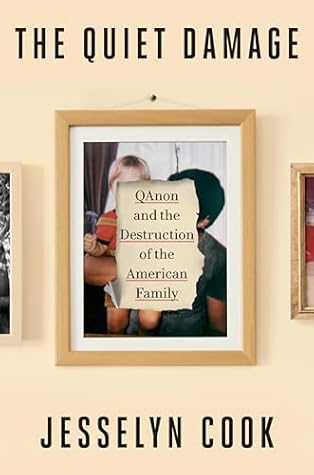More on this book
Community
Kindle Notes & Highlights
Read between
October 23 - October 29, 2024
For many, the allure is less about what it makes them think than how it makes them feel.
Researchers would later find a positive correlation between conspiracy theory belief and depression—most prevalent, interestingly, among the relatively privileged: white people, high-income earners, and those with college educations. Psychological stress as well as state (situation-based) and trait (personality-based) anxiety were also determined to be precursors, suggesting a circumstantial vulnerability in some cases rather than a mental disorder.
Emotional trauma had the power to permanently alter the brain: It could cause the amygdala—the alarm center controlling emotional responses such as fear, anxiety, and aggression—to become overactive. Social isolation and loneliness, as well, were known to fuel hypervigilance toward perceived threats, in addition to cognitive decline.
Narcissism was one of very few personality traits that was a robust predictor of conspiracy theory thinking.
Users were tracked and catered to in real time, individualizing their online experiences. Instead of flipping through standardized, prewritten pages of the paper, Dale and Doris scrolled through their personal newsfeeds in a choose-your-own-adventure manner, the content on their screens gradually recalibrating on the basis of their every click. In time, it was Facebook that did much of the choosing for them.
This kind of thinking was encouraged by Trump and others on the right more broadly, creating epistemic pandemonium. Joined by homeopaths, miracle healers, and fellow pushers of pseudoscience, a groundswell of discredited scientists and fringe doctors came out of the woodwork as Covid truthers.
What had felt to Matt like an epiphany, however, was in fact an apophany: a Rorschachian conclusion drawn from dots that have no business being connected. Apophenia is a natural phenomenon; the human brain is hardwired to scan for patterns, even where they don’t exist. It’s also a bedrock of conspiracy theory thinking, wherein illusory patterns perceived in random noise are held up as evidence of nefarious activity.
“I know who you are. You’re educated, you’re smart, you’re successful, you’re accomplished. But mom, you’ve been brainwashed by propaganda designed to manipulate and deceive you.”
Standing with the tribe was more important than standing for the truth when one’s ideology became their identity.
And when people’s firmly held beliefs are challenged—particularly those tied to their sense of self—the brain reacts the same way it would to a physical threat, ready to defend those beliefs as if they were part of the body.
Research suggests that harboring grievances—whether they stem from real or perceived offenses—actually makes people feel good. Brain-imaging studies have revealed that feeling aggrieved, and in turn, desiring retribution, stimulates the same neural reward-processing circuitry as narcotics.
While Alice interpreted life through rose-tinted glasses, he saw things in black and white, relying on data and empirical evidence to make sense of the world around him.
Religious belief was significantly positively correlated with conspiracy theory belief, attributed by experts to the service of common psychological needs (certainty, purpose, community) and shared underlying elements (grand narratives, a righteous mission, conviction in the unseen).
“The masses have never thirsted after truth. They turn aside from evidence that is not to their taste,” he wrote. “Whoever can supply them with illusions is easily their master; whoever attempts to destroy their illusions is always their victim.”
A moment of raw human connection had just accomplished for Matt what no amount of fact-checking or debunking ever could: It started to shake his faith in the lies he’d been sold.
Beyond the relationships she’d lost and the emotional strife she’d suffered, she was actively demolishing her reputation as the kind, compassionate human he knew her to be. How much more was she willing to wager on a dream that might never come true?
Q: Into the Storm laid bare in visceral detail the extraordinary harm that QAnon had wrought on American democracy. But missing from the film’s six hours—and from the roaring national discourse surrounding the movement—was the quiet damage to families like Matt’s.
Since reexamining his faith, however, Matt had come to understand things differently. He didn’t need to be a digital soldier or even a servant of God to find purpose in life. It wasn’t his job to save the world one way or another. He just needed to be a good parent, a good partner, and a good person. That was enough.
“I could teach you all the media literacy tips in the world,” says Dr. Joanne Miller, an expert in political psychology and a professor at the University of Delaware, “but if you’re feeling uncertain; if you’re feeling a lack of control; if you’re feeling socially isolated; if you’re feeling helpless and searching for answers, because answers will make you feel better, then media literacy won’t help you. You’ll throw it all out the window.”


